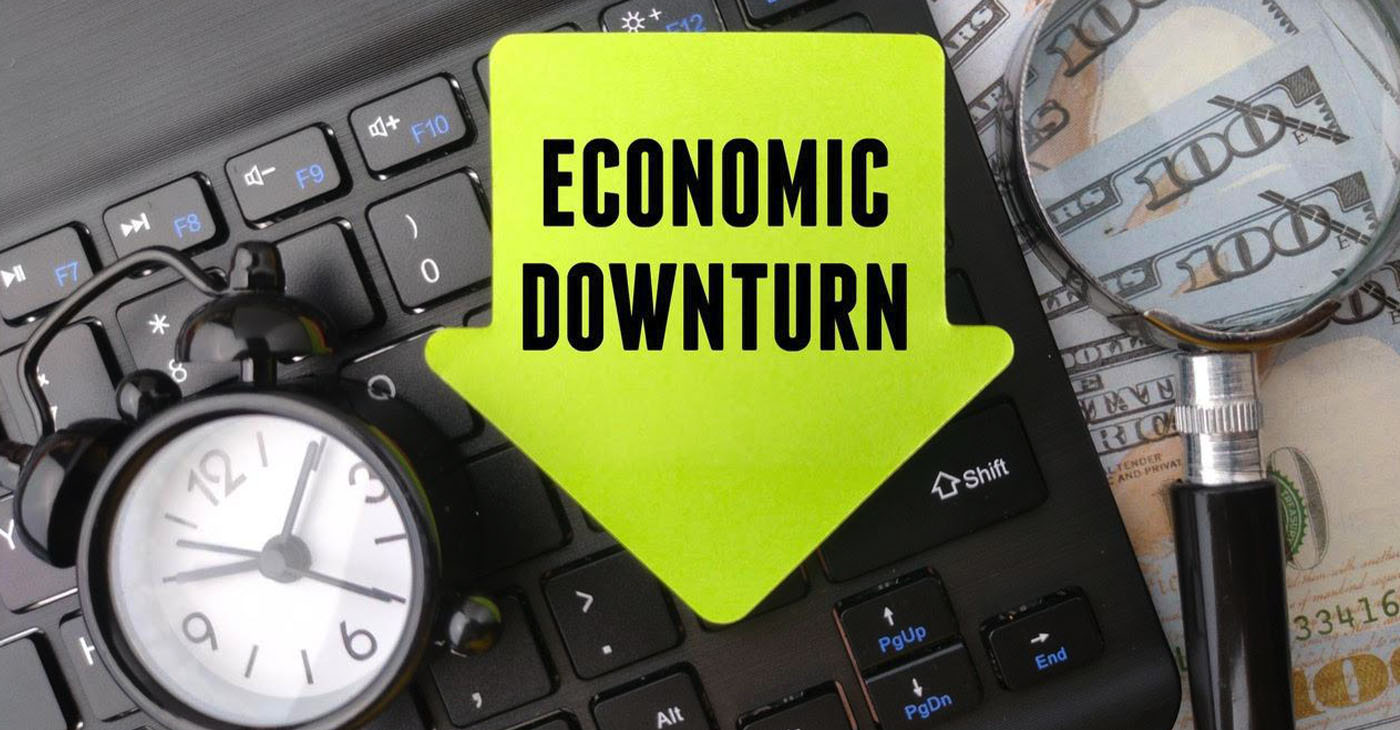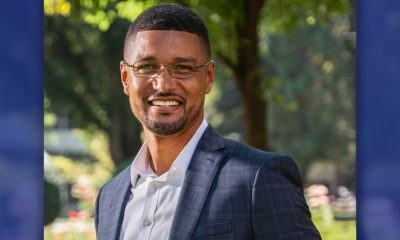California Black Media
Reports Cast Shadows on the Economic Picture for Black Californians
Recent studies suggest that the economic picture for Black Californians is not looking rosy. The state is becoming less affordable for African Americans, leading many families to relocate to less expensive places both within and past the borders.

By Lila Brown
California Black Media
Recent studies suggest that the economic picture for Black Californians is not looking rosy.
The state is becoming less affordable for African Americans, leading many families to relocate to less expensive places both within and past the borders.
“After pandemic-era declines, California’s poverty rate is on the rise. Expansions to safety net programs during the pandemic reduced poverty substantially, but these expansions had mostly expired by the end of 2022,” reads a report published by the Public Policy Institute of California (PPIC) on Oct. 24.
For Black Californians, the poverty rate at 13.6% is more than double the percentage of African Americans living in California, which currently stands at about 5.8% of nearly 40 million Californians.
“The state’s overall poverty rate increased from 11.7% in fall 2021 to 13.2% in early 2023,” the PPIC report continued.
The unemployment numbers for Black Californians also remain high — and continue to climb.
According to the Economic Policy Institute, the unemployment rate for Black Californians stands at 7.4%, which is higher than the state’s 4.5% total unemployment rate for the second quarter of 2023. This is also higher than the national rate of 5.8%.
In California, the Black-white unemployment ratio is at 1.9 to 1. The national Black-white unemployment ratio remained at 2 to 1 in the second quarter of 2023, maintaining the historic trend of Black workers being twice as likely to be unemployed as white workers. There’s nowhere in the country where the unemployment numbers for Black and white workers are equal.
For September, the California Employment Development Department (EDD) reported that unemployment was on the rise. The state’s unemployment rate crept up to 4.7%, an increase of 144,000 people. It is the second-highest unemployment rate of any state. The labor force — Californians working or looking for work — also shrank.
Between 2021 and 2022, the overall poverty rate in California rose from 11.0% to 16.4%. This increase can be linked to the high costs of living, inflation, and the end of pandemic-era supports. Financial assistance cut the poverty rate for Black Californians by one quarter to 9.5% in 2021, but it nearly doubled to 18.6% the year after.
U.S. Census data showed that 54% of Black Californians reported facing difficulty paying for essential needs like food and housing.
Los Angeles County (15.5%) and San Diego County (15.0%) had the highest poverty rates. The Central Valley and Sierra region had the lowest (10.7%), largely due to lower housing costs.
In China last week, Gov. Gavin Newsom highlighted the strength of California’s economy, the fifth-largest in the world, and President Joe Biden released his Bidenomics report in June highlighting the achievements of his Invest in America plan.
The White House reports that under the Biden-Harris Administration, Black Americans have experienced their lowest recorded unemployment rate and the highest employment rate since November 2000.
The participation of Black workers in the labor force has also reached its highest level since August 2008. The poverty rate for Black children has been reduced by more than 12%, impacting over 200,000 children, through the Thrifty Food Plan.
Most reports point to signs that the nation is at pre-pandemic levels and California has recovered its pandemic-induced job losses in June 2022, according to the latest California Labor Market Review released in August.
However, numbers indicating the state economy is strong contrast with the harsh realities confronting many Black Californians struggling to make ends meet.
A study by the Urban Institute shines light on the complex challenges Black Californians face as more decide to relocate to less expensive areas, driven by a combination of economic factors like housing unaffordability, rolling layoffs, rising inflation, increasing renter evictions, and stagnant salaries.
“This has been the reality of many Black Californians: As the Black populations of San Francisco and Alameda counties drop, those of Contra Costa and Sacramento rise. As Los Angeles sees its share of Black residents decline, neighboring Riverside and San Bernardino shares increase,” that report says.
Lisa D. Cook, governor of the Federal Reserve Board, says unemployment is the root of all of America’s social problems and pushing for maximum employment is the solution to minimizing poverty. Cook spoke while accepting the Louis E. Martin Award on Oct. 18 in Washington, D.C.
“Maximum employment boosts long-run economic potential. It means that a vital resource is being used productively. A strong labor market increases labor force participation and the willingness of firms to recruit and upgrade the skills of workers,” Cook stated.
“The full participation of all segments of society should be expected to result in more ideas, including more diverse ideas, more invention, and more innovation.”
Activism
Living His Legacy: The Late Oscar Wright’s “Village” Vows to Inherit Activist’s Commitment to Education
Kingmakers of Oakland (KOO), a nonprofit organization that works to improve educational and life outcomes for Black boys and men, stated that “Oscar Wright is one of the most prolific, consistent, and committed advocates of equity for Black students and Black Families here in Oakland for the past six decades.”

By Antonio Ray Harvey, California Black Media
Activists mourning Oscar Carl Wright’s death, have pledged to continue his lifelong mission of advocating for Black students and families in Northern California.
Wright, 101, who passed away on Nov. 18, was involved in Oakland’s educational affairs until his death.
Now, friends and admirers acknowledge that carrying on his legacy means doubling down on the unfinished work that Wright dedicated his life, time, and resources to, according to Y’Anad Burrell, a family friend and founder of San Francisco-based Glass House Communications (GHC).
“Mr. Wright did a lot of work around equity, specifically, for Black students based on their needs — whether it was tutoring, passing classes, or graduating,” Burrell said.
Wright became a champion for his children’s education, recognizing the disparities between their school experiences and his own upbringing in the Mississippi Delta.
Burrell told California Black Media (CBM) that the crisis of unequal access to resources and a quality education continues to affect the Oakland Unified School District (OUSD).
According to Oakland Reach, in the city of Oakland, only 3 in 10 Black and Brown students are reading at or above grade level. In addition, only 1 in 10 are doing math at or above grade level.
Oakland REACH is a parent-run, parent-led organization. It aims to empowers families from the most underserved communities to demand high-quality schools for their children.
Wright’s work as an activist had impact across the state but he was primarily known in the Bay Area. Alongside the Black United Front for Educational Reform (BUFER), he filed a complaint against OUSD for violating the Civil Rights Act of 1964.
In 2000, the OUSD school board proposed an action plan to address educational inequity, but it was never implemented.
Wright later founded the African American Honor Roll Celebration at Acts Full Gospel Church, an award that recognizes Black students with a grade point average of 3.0 or better. Each year, more than 1,000 students are honored at this ceremony.
Kingmakers of Oakland (KOO), a nonprofit organization that works to improve educational and life outcomes for Black boys and men, stated that “Oscar Wright is one of the most prolific, consistent, and committed advocates of equity for Black students and Black Families here in Oakland for the past six decades.”
Burrell said that one of the main reasons Wright’s work was so essential for families and children in Oakland that is the direct relationship between acquiring a quality education and affording quality housing, maintaining food security, achieving mental wellness, and securing stable employment.
Wright was the child of sharecroppers from Coahoma County, Mississippi. He attended Alcorn State University, a Historically Black College and University (HBCU).
In the late 1950s, Wright and his family relocated to the Bay Area where he worked as a contractor and civil engineer. He later became an active member of the National Association for the Advancement of Colored People (NAACP).
Burrell said the people who will carry on Wright’s work are part of a “village” that includes KOO’s CEO Chris Chatmon. Wright was a mentor to Chatmon.
“It will not be one entity, one person, or one organization that picks up the baton because it was a village effort that worked alongside Mr. Wright for all these years,” Burrell said.
Burell says that legacy will live on.
Antonio Ray Harvey
Secretary of State Reports “Generous Turnout” in November Election
Among the statewide election statistics reported by the Secretary of State’s Office 13,034,378 vote-by-mail ballots were cast, while 3,105,666 ballots were cast at voting locations. Two days before the certification, Weber held a news briefing with media publications. During the conference, held on Zoom, Weber shared details about the process of certifying votes.

By Antonio Ray Harvey, California Black Media
On Dec. 13, California Secretary of State (SOS) Shirley N. Weber officially certified the Nov. 5 General Election results from all 58 counties.
The SOS reported that 16,140,044 (71.43% of registered voters) ballots were cast in this past election. The total number of votes this year was down from the Nov. 3, 2020 vote count which was 17,785,151 or 80.67% –by nearly nine percentage points (according to Weber’s “Statement of Vote: General Election Nov. 5, 2024” report.
Among the statewide election statistics reported by the Secretary of State’s Office 13,034,378 vote-by-mail ballots were cast, while 3,105,666 ballots were cast at voting locations.
Two days before the certification, Weber held a news briefing with media publications. During the conference, held on Zoom, Weber shared details about the process of certifying votes.
Weber said, although there were minor issues and “glitches,” overall the election process in the state ran accordingly.
“There were instances and things that happened, but they did not stop the election. We did not have people lose confidence and not go to the polls to vote,” Weber said.
“There were minor glitches that took place, but we addressed each one of them and nothing seemed to linger in regard to people who wanted to vote and participate in the process which was evident by the generous turnout that we had,” said Weber.
The Public Policy Institute of California reported on Nov. 18 that the decline in votes is notable because there were more registered voters in 2024 than in 2020. PPIC estimated that 1.7 million fewer ballots were cast in 2024, despite having 550,000 more registered voters and 1.8 million more eligible residents than in 2020.
Weber acknowledged the decrease in voter participation compared to the November 2020 election, but she said California’s voters’ registration was higher than the rest of the country.
“Nationally, the 2024 registrations are at 63%. So, we are higher (at 70%) than the national average,” Weber said. “Despite what people might say, we are still in the lead regarding voter turnout, participation, and registration with the largest population in the United States.”
Activism
Advocates Demand Action on Reparations During Gov’s Special Legislative Session
During the special session and regular session, the group called for the re-introduction of reparations legislation that did not get a vote in the last legislative season, a distribution of the final California Reparations Task Force Report to schools and libraries, and the establishment of a defense fund to support implementation and legal defense of the reparations report and associated bills.

By Antonio Ray Harvey, California Black Media
A coalition of reparations advocates are demanding that the California legislature, Attorney General Rob Bonta, and Gov. Gavin Newsom act decisively on reparations bills that have stalled in the Legislature.
They are calling on the state leaders to pass the bills during the special legislative session the Governor called this month to secure up to $25 million for California “to defend against unconstitutional or unlawful federal government actions” expected during the incoming Trump administration.
The advocates want the push for reparations for Californians who are descendants of enslaved Black people in the United States to continue next year during the regular session, which begins when the Legislature convenes on Jan. 6, 2025.
“California has a proud history of leading difficult change in America from environmental policies to safety standards to same-sex marriages and the like,” said Tullus Miller, a Bay Area financial services executive.
Miller was speaking during an engagement held Dec. 2 on the grounds of the State Capitol with the California Native American Monument as the backdrop.
Los Angeles-based attorney Cheryce Cryer explained the purpose of the event. “I’m here today, to bring attention to the needs of Black Americans and the need for our legal and social protections as the special legislative session convenes.”
In addition to Miller and Cryer, other speakers at the event were Dr. Booker Cook, Ethnics Studies professor at the California State University, Sacramento (CSU-Sacramento) and Khansa “Friday” Jones Muhammad, Vice President of the Los Angeles Reparations Advisory Commission.
During the special session and regular session, the group called for the re-introduction of reparations legislation that did not get a vote in the last legislative season, a distribution of the final California Reparations Task Force Report to schools and libraries, and the establishment of a defense fund to support implementation and legal defense of the reparations report and associated bills.
“Today, that Freedmen’s Bureau (bill) needs to be re-established,” Cook said. “The work is done. The history is there, and the proof is there. There should be no more arguments and no more debates.”
Authored by former Sen. Steven Bradford (D-Inglewood), Senate Bill (SB) 1403 and SB 1330 stalled in the Assembly in September, triggering backlash from reparations supporters across the country.
Leadership of the California Legislative Black Caucus (CLBC) said they agreed not to support bringing forth Bradford’s bills due to procedural and funding concerns. However, the CLBC was able to secure $12 million in next year’s budget to continue work on reparations legislation.
“California has been leading the nation in reparations discussions,” Jones-Muhammad said. “The advocates in this space have spent five years doing the impossible and working with the Legislature to bring foundational reparations policies through the Senate and Assembly Appropriations.”
The CLBC starts the 2024-2025 legislative session with new leadership. Sen. Akilah Weber (D-La Mesa) serves as the chairperson, while Assemblymember Isaac Bryan (D-Ladera Heights) is the vice chair.
For starters, Bryan introduced Assembly Bill (AB) 7 on Dec. 3, a new reparations bill that would provide priority admission for descendants of slaves at CSU and the University of California (UC) campuses.
“As the new Vice-Chair of the California Legislative Black Caucus we will continue to fight for what is just,” Bryan stated on the X platform the same day.
-

 California Black Media4 weeks ago
California Black Media4 weeks agoCalifornia to Offer $43.7 Million in Federal Grants to Combat Hate Crimes
-

 Black History4 weeks ago
Black History4 weeks agoEmeline King: A Trailblazer in the Automotive Industry
-

 California Black Media4 weeks ago
California Black Media4 weeks agoGov. Newsom Goes to Washington to Advocate for California Priorities
-

 California Black Media4 weeks ago
California Black Media4 weeks agoCalifornia Department of Aging Offers Free Resources for Family Caregivers in November
-

 Activism3 weeks ago
Activism3 weeks agoOakland Post: Week of November 27 – December 3, 2024
-

 Activism4 weeks ago
Activism4 weeks agoOCCUR Hosts “Faith Forward” Conference in Oakland
-

 Activism4 weeks ago
Activism4 weeks agoRichmond Seniors Still Having a Ball After 25 Years
-

 Activism2 weeks ago
Activism2 weeks agoButler, Lee Celebrate Passage of Bill to Honor Congresswoman Shirley Chisholm with Congressional Gold Medal





















































